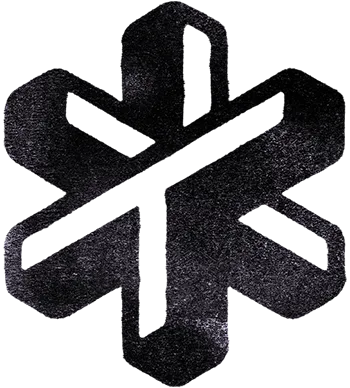
Resources
Helpful links and materials.



Ways to Get Involved

Research & Studies
Books
Relevant Organizations
FAQ
The non-speaking subjects in *The Telepathy Tapes* have “Apraxia” — a neurological condition that affects a person’s ability to carry out purposeful, coordinated movements—even though they understand what they want to do. This includes speaking. Speaking is complex, and for most, apraxia involves disrupted coordination of over 100 speech muscles. For some, including nonspeakers, apraxia is even more global. These individuals must first rewire how the brain, body, and limbs work together to co-produce intelligible speech.People with apraxia know what they want to say. But the brain struggles to send the correct signals to the mouth and body to execute speech. That’s why spelling to communicate—where stimulus and response are decoupled—can become a powerful tool for expression. Pointing typically involves large muscle groups and simpler movements.Apraxia is not a cognitive impairment. It’s a motor planning disconnect between the brain and body.
Spelling is a generic shorthand term for the communication method used by many non-speakers whereby they utilize the gross motor skill of pointing to letters on a board or keyboard to produce communication. For those living with motor planning challenges, this is often called a mind-body disconnect. While their minds are fully intact, their bodies don’t always follow their commands.
Facilitated Communication (FC) is the original method of spelling and involves someone supporting a person’s hand or arm while they point to letters. Spelling (as used in *The Telepathy Tapes*) refers to *independent pointing*, where the individual spells without physical support.Today, spelling typically involves a letterboard (low-tech) or keyboard (high-tech), with a communication partner who may help regulate the person’s body through co-regulation and emotional support—but without touching or guiding the pointing hand.This distinction is critical in both practice and research. The goal of spelling is *independent agency*—not influence. FC has been widely criticized, and those critiques don’t apply to current spelling methodologies rooted in motor planning, not suggestion.
We do not believe in using the word “all” when describing any group of people. *The Telepathy Tapes* explores the possibility that some non-speaking individuals may experience telepathy or unknown forms of connection—especially in close relationships—but it does not claim that this is universal.Every non-speaker is unique. Some have extraordinary cognitive access. Others experience intense apraxia. Telepathy and other forms of consciousness may be natural traits that all of us possess to some degree—but some nonspeakers may be more able to tap into this natural form of sensing more effortlessly. The project is an invitation to remain curious, not a blanket declaration about any group or ability.
No. Spelling and telepathy are completely separate things. Many families, teachers, and therapists we support keep clear epistemic boundaries between spelling (a motor planning technique with observed letter-by-letter responses) and telepathy (a subjective, sometimes instantaneous communication).While they can coexist within the same individual, they are not functionally or mechanistically the same. In some families, one is a support for the other. In others, they are separate phenomena some nonspeakers are exploring—often through anecdotal or experimental means.
Not at all. This is one of the most important misconceptions. Non-speakers do not need to 'become another’s thoughts' to produce their own. The telepathy observed in *The Telepathy Tapes*—if it’s real—can have more to do with synchrony, resonance, shared intention, or deep emotional attunement than with control.One of the most shocking things about spelling is how often it *disagrees* with what people assume the individual thinks. Many parents, teachers, and facilitators have learned surprising, unexpected, or even challenging truths once spelling began. It is not about affirmation—it is about revelation.If telepathy plays a role, it doesn’t negate authorship. It simply adds another layer of connection—just like any human conversation is shaped by context, relationship, energy, and emotion. If you’ve ever said something before someone else did and they thanked you for 'saying what I was thinking'—that is the kind of dual-awareness we’re talking about.
Spelling is not inherently pseudoscientific or illegitimate. When people say spelling “has been debunked,” they’re often referring to outdated studies on Facilitated Communication (FC), not current methods involving independent pointing.In reality, spelling *is* considered evidence-based when it meets these three standards:- Existing research (there *is* a link to current studies and research around spelling)- The clinician’s professional judgment- The individual’s informed choice and preferenceWe also need to ask: Who is designing these tests—and with what assumptions? Too often, studies 'debunking' spelling:- Start with a presumption of incompetence- Mistake motor challenges for cognitive inability- Set up testing conditions that are confusing, overwhelming, or culturally biased
There are several training options for becoming a Communication Regulation Partner (CRP) or spelling facilitator. Some are science-based and widely accepted; others are more holistic or exploratory. A few starting points include:
– C4A Academy (free, open access)
– Mouth to Hand Learning Center (telepathy-inclusive CP course)
– I-ASC / S2C Practitioner Certification
– Spellers Method Training
We recommend starting with a lens of humility and curiosity—there is no one-size-fits-all.
All three approaches are forms of spelling-based communication support for non-speakers, but they differ in methodology, training standards, and philosophical grounding.
- S2C (Spelling to Communicate) and RPM (Rapid Prompting Method) are structured methods focused on regulation and motor planning.
- Spellers emphasizes practitioner training and broader advocacy.
While they may look similar on the surface, the relationships and nuance behind each are important—and the best fit depends on the individual.
The history of communication support for non-speakers is filled with controversy, partly due to early misuse, poorly designed studies, and deeply entrenched biases about disability.
Many critiques are based on outdated information or misunderstandings of apraxia and motor planning.
Today, there is growing peer-reviewed evidence, IRB-approved studies, and clinical support—but stigma remains, especially when it challenges dominant assumptions about intelligence and autonomy.
New protocols are emerging that go beyond outdated facilitator-blind methods. Some involve:
- Double-blind message-passing
- Remote-viewing with no shared environment
- Synchronous, real-time tests in controlled settings
- Technology-assisted tracking of letter selection
Ethical and methodological rigor is central to ongoing studies, many of which are IRB-approved and led by researchers at institutions like Cambridge, UC San Diego, and UVA.
Absolutely. Spelling is one form of access—but not the only one. Some non-speakers communicate through gesture, movement, telepathy, or other subtle means.
This project centers on spelling because it offers observable data, but our deeper aim is to recognize intelligence and intention in all forms.
No method defines someone’s worth or awareness. We meet people where they are—and advocate for expanding the tools available to do that.
It’s a fair question—and one researchers are actively working to control for. That’s why tests now include randomization, double-blind protocols, and nonverbal setups.
But it’s also worth asking: what biases have prevented us from believing non-speakers in the first place?
This project is about staying open—not abandoning rigor, but widening the lens of what’s possible and how we test for it.
Dive Into The Show
Catch up on the latest episodes of The Telepathy Tapes.
Backstage Pass
Go deeper with the exclusive Telepathy Tapes Backstage Pass to unlock ad-free episodes, BTS footage, a private community, and more.
